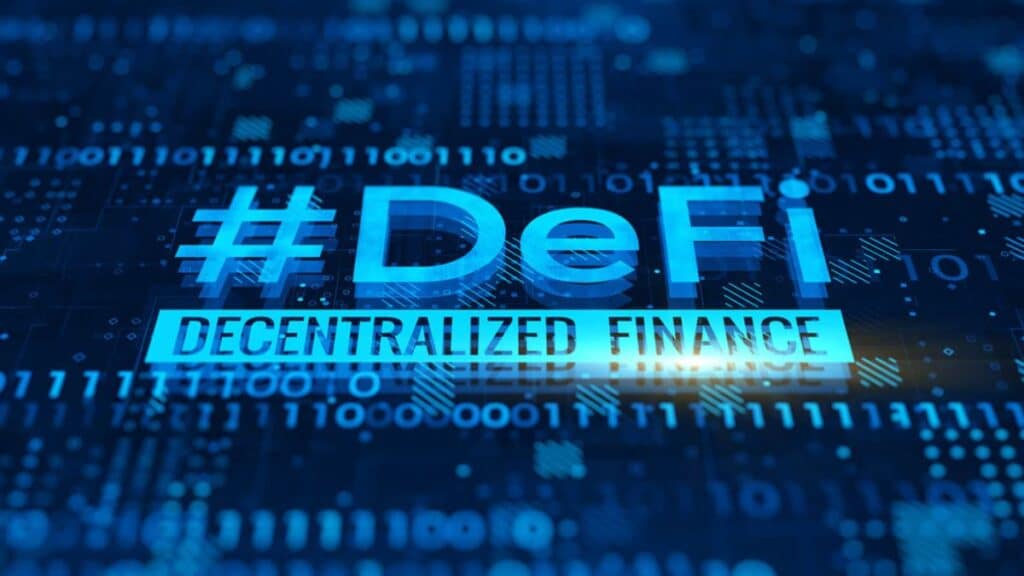10 Top Use Cases for Smart Contracts in DeFi in 2024
Table of Contents:
- P2P lending and borrowing
- Insurance
- Digital Identity
- Infrastructure tooling
- Asset Management
- Derivatives and Artificial Assets
- Improved Digital Identity
- Video games and eSports
- Stablecoins
- Tokenization
DeFi is, without a doubt, the primary disruptor of blockchain technology. Not only has it created superior alternatives to conventional financial practices, but it has also introduced novel financial concepts such as synthetic assets. As the financial world undergoes this rapid transformation due to DeFi, you must seek new opportunities.
Let’s examine the Use Cases for Smart Contracts in DeFi in 2024
1. P2P lending and borrowing
Due to DeFi’s elimination of traditional banking systems from the competition, the emergence of a lending and borrowing use case is crucial. Nonetheless, the DeFi ecosystem is suitable for peer-to-peer lending and borrowing. Multiple DeFi projects focusing on this use case have already been introduced to the market. Similarly, Compound and Pool each have interest-based borrowing and lending protocols for assets.
2. Insurance
One of the most powerful applications for distributed finance is the insurance market, which is also one of the most significant financial sectors. Excessive paperwork, obsolete auditing systems, and cumbersome insurance claim procedures impede the current insurance system.
These problems with the current system could be resolved through the successful DeFi smart contract development.
Numerous DeFi projects (Nexus Mutual, Open, and VouchForMe) offer blockchain-based insurance against DeFi or smart contract-related risks.
3. Digital identity
Recently, blockchain-based digital identities have gained popularity. Nonetheless, pairing them with the DeFi protocols would facilitate their access to the global economic system. In addition, the new type of digital identity would enable the underprivileged to access DeFi apps from any Internet location. Additionally, it may be one of the possible use cases.
4. Infrastructure tooling
DeFi protocols are designed with composability in mind, so that disparate parts of a system can quickly and easily establish connections and exchange data. Ethereum developers and product teams can now construct and launch DeFi protocols with the required full-stack tools and security integrations.
5. Asset Management
Users now have greater control over their assets, which is one of the most significant effects of DeFi. Many of the leading DeFi projects offer solutions enabling users to manage their assets, including purchasing, selling, and transferring digital assets. Consequently, users can also earn interest on their digital assets.
In contrast to the conventional financial system, DeFi allows users to keep their sensitive data private. Consider the private keys or passwords for your financial accounts; previously, you were required to share this information with relevant entities.
DeFi projects such as Metamask, Argent, and Gnosis Safe assist users in encrypting and storing this information on their devices. This ensures that only the users can access and manage their accounts and assets. Therefore, asset management is one of the most practical applications of decentralized finance for users.
6. Derivatives and Artificial Assets
Smart contracts enable the creation of tokenized derivatives, which has become one of the most novel applications of DeFi. Tokenizing a product involves basing the value of an agreement on a financial asset or set of assets. This underlying financial asset functions as a traditional security, consisting of bonds, fiat currencies, commodities, market indices, interest rates, or stock prices.
Now, tokenization of derivatives is secondary securities whose value fluctuates based on the value of the underlying primary securities (bonds or fiat currencies). Thus, products generate artificial assets. Synthetix and dYdX are two of the leading tokenized derivatives-focused DeFi projects.
7. Improved Digital Identity
In recent years, blockchain-based digital identity systems have gained significant traction. The combination of DeFi protocols and these identity systems could facilitate access to the global economic system. The conventional approach uses a person’s income or accumulated assets as creditworthiness indicators. With a digital identity paired with DeFi, it is possible to consider other practical characteristics, such as financial activities and professional prowess. This new digital identity could enable the underprivileged to access DeFi applications from any Internet-connected location. Certainly, this could be one of the potential use cases.
8. Video games and eSports
The days when video games were merely a form of entertainment are long gone. The majority of new video games include in-app purchases and loot boxes. These features allow users to purchase new skins for their characters and tools using real-world currency.
Using DeFi, game developers can implement current incentive or reward models using DeFi coins. As users become more tech-savvy and receptive to emerging technologies, gaming and eSports will likely become one of the largest markets.
9. Stablecoins
Stablecoins, digital assets pegged to the value of a fiat currency or commodity, are created using DeFi smart contracts. These smart contracts enable the creation of decentralized, transparent, and low-volatility stablecoins, making them ideal for use as a medium of exchange.
10. Tokenization
The tokenization of assets is a central feature of the DeFi ecosystem. Tokenization is issuing and managing digital assets on a blockchain network. As any asset can be tokenized and stored on a blockchain, it effectively creates a new economic system.
NFTs, for instance, tokenize digital assets that hold value based on the scarcity and demand for specific digital help. Numerous decentralized finance initiatives are working on tokenizing digital support to create, store, and exchange value.
Final Words
Given the sheer number of DeFi projects and use cases, it is evident that DeFi occupies a prominent position within the global economic ecosystem. In addition to providing viable alternatives, DeFi has created new markets and business opportunities. Furthermore, DeFi can outperform legacy systems and technologies in every conceivable way.
However, DeFi still faces several obstacles and difficulties. Due to scepticism and a lack of education, people are still hesitant to adopt newer strategies and practices.


























